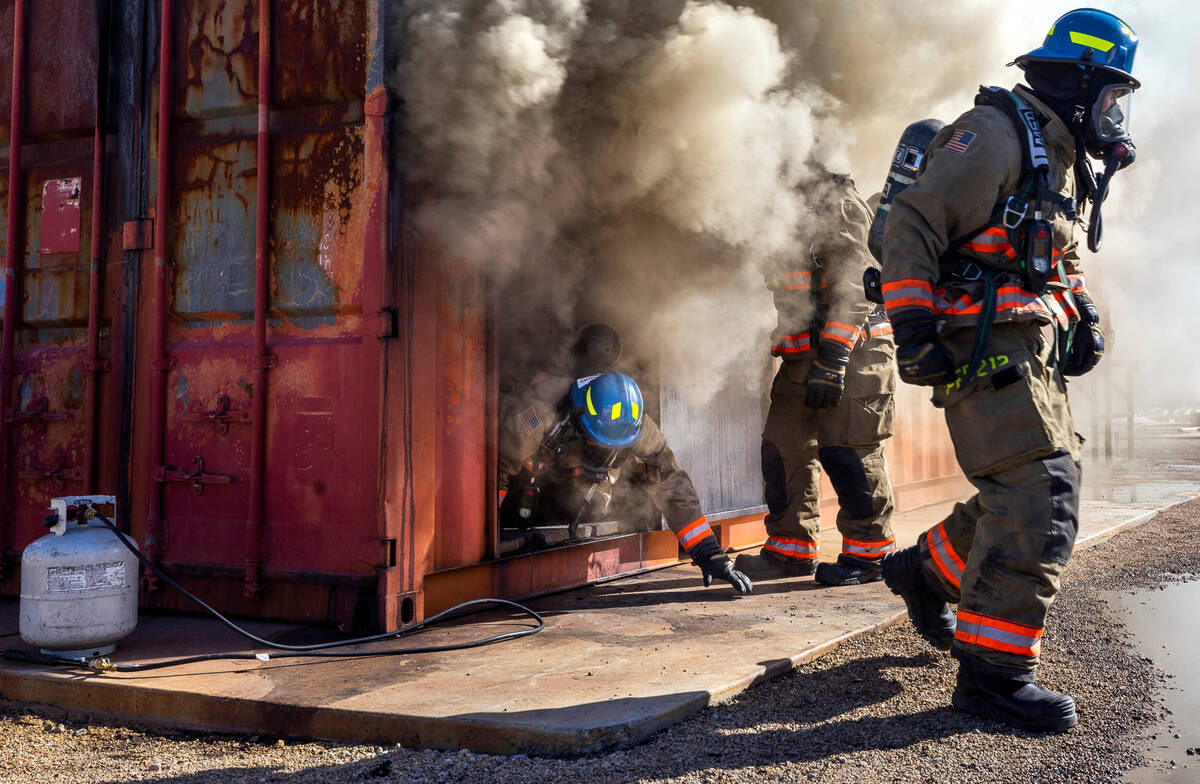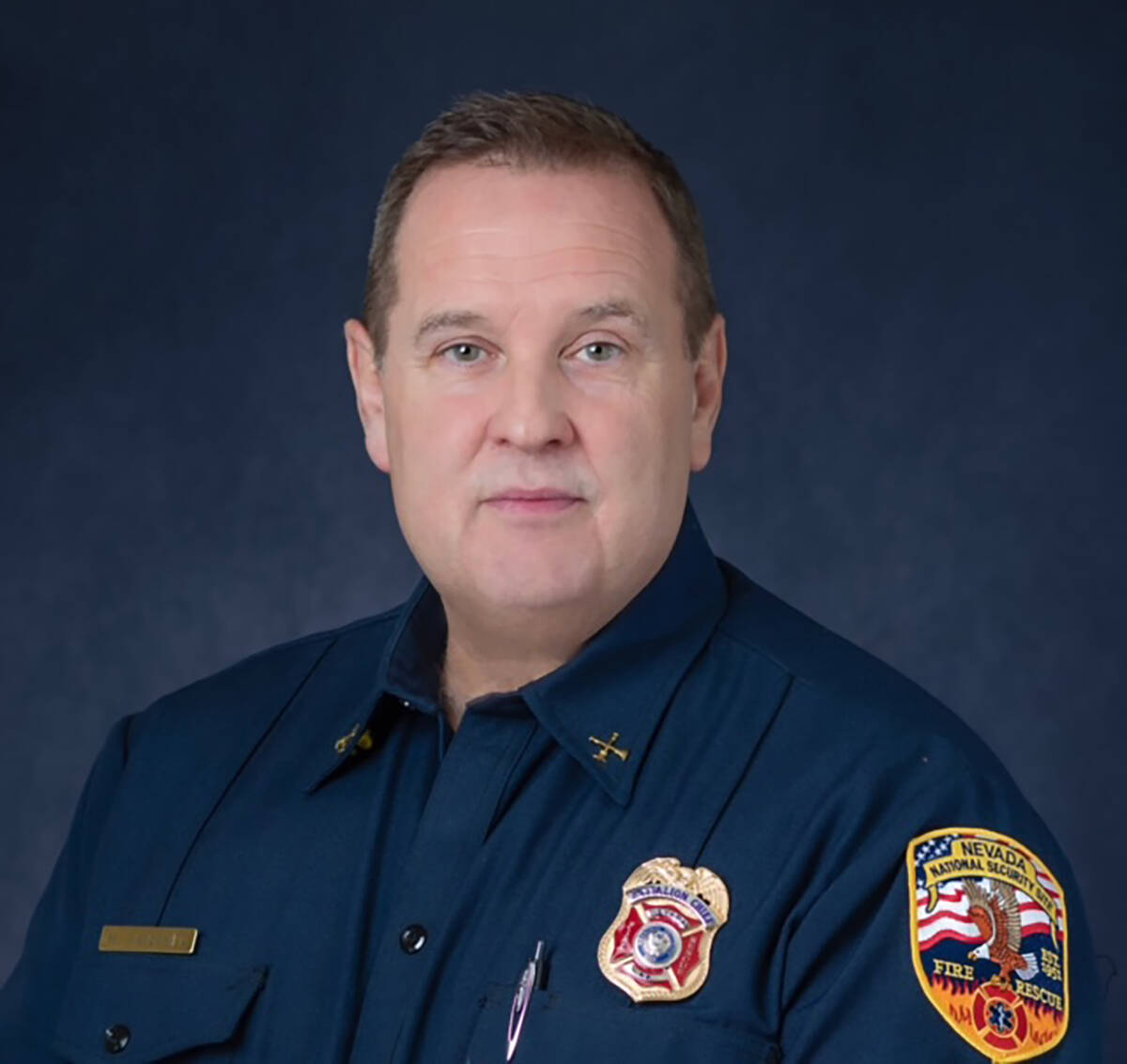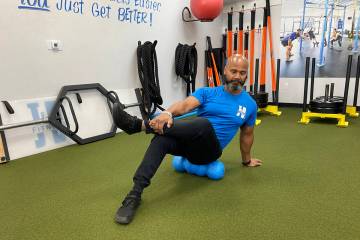Shining a light on mental health of first responders
Our first responders are charged with protecting the safety and well-being of the community, oftentimes putting themselves in harm’s way to do so. They are the epitome of real-life heroes.
Here in Southern Nevada, the community has experienced several unprecedented large-scale crisis events: the Oct. 1, 2017, massacre on the Strip, the Dec. 6 shooting at UNLV, along with countless other events of violence and pernicious natural disasters.
Although first responders have been trained to engage in extreme situations, typically such trainings do not comprehensively address their post-response mental health needs. However, notable events such as the pandemic, have shined a brighter light on the mental health needs of first responders.
I recently discussed the topic with Mike Worthen, the EMS division chief of mission support and test services for Nevada National Security Site Fire and Rescue. This interview has been edited for length and clarity.
Dr. Sheldon A. Jacobs: Please share what you do and how you got involved in this line of work?
Mike Worthen: I have been a paramedic and involved in EMS since 1991. I took my first EMT class in 1989 and I just fell in love with medicine and the fact that we were providing an invaluable service to the community. For me, it has always been about trying to make a difference.
Over the past three or four years, I have really been passionate about mental health for first responders, because we see so many people in the first responder community suffering from mental health issues — whether it be alcohol abuse, drug abuse, depression, suicide. There are just way too many of us suffering in silence, so we have to normalize the conversation about mental health and first responders.
What has your mental health journey been like?
It was 11 years into my career, and I decided I wanted to be a flight medic part time. On April 3, 1999, one of our helicopters went down in Indian Springs and crashed. What was taught to us, early on, were ways to stuff down our emotions on how incidents such as this affected us, and how we never gave ourselves the permission that it was OK to talk to professionals. I ended up working for another company, then a similar incident happened on Sept. 7, 2002, where I lost three really good co-workers, who were also good friends. I did not know how to ask for help, because it is taboo among the first responders, because we are the strong ones, we are the ones that rescue people.
I did not deal with my thoughts, feelings and emotions — they dealt with me. I lost the resilience to appropriately handle them, so what used to be two or three beers after a shift to blow off steam turned into drinking excessively five to six nights a week for four years. There were a lot of times where alcohol was not enough for me, so I had to resort to other things.
I think that is what a lot of first responders get trapped into. Along with substance abuse comes shame, guilt and depression, among other things.
There were many times during those four years where I hoped two things would happen: either I would drink myself to death or I would overdose … because I wanted the pain in my head to stop.
I think it’s the same battle that a lot of first responders fight. I just celebrated being clean for 18 years, for which I am fortunate.
Can you elaborate a little on the stigma within the first responder community?
Mental health carries a stigma, but even more so within the first responder community because of the expectations the general public puts on us. We are here to serve, and we do not want to disappoint. We have to understand that when we take our uniforms off we are still a human being with normal human emotions, normal feelings that are chronically exposed to abnormal events that are traumatic in nature. So, part of taking care of yourself is giving yourself the permission to be vulnerable with someone you trust.
For additional information, email Worthen at mikepworthen@gmail.com.
Dr. Sheldon A. Jacobs, Psy.D., LMFT, is a licensed mental health professional based in Las Vegas. Contact him at drjacobs10@hotmail.com. Follow @drjacobs33 on X and Instagram.





























